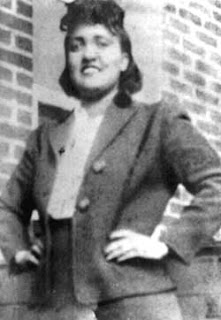As I watch my daughter explore the joys of attending a large prominent university, such as the numerous and affordable study abroad programs and the interesting interdisciplinary majors such as Peace and Conflicts Studies, I am filled with nostalgia for those days when I was getting ready to attend college forty years ago. I noticed the other day that my alma mater had assigned the book, Immortal Life of Henrietta Lacks, by Rebecca Skloot, to incoming freshman to read. I remember getting, in the late spring of 1971, the list of books to read before attending Smith. I believe we had to read several books although I cannot remember any of the names of the books I read except for one, The Feminine Mystique.
Betty Friedan had also attended Smith College and had studied psychology, which wound up being my major although in 1971 I thought I would major in American Studies. Her book had a profound effect on me which permeated my college experience and has influenced my life as I became part of what my daughter tells me is called the second wave of feminism. See also here. I skimmed a summary of the book this morning and noticed that it was also likely the source of my distaste for Freud in my studies of psychology, despite the views of some of my friends at Yale. (I remember reading Freud in a car while waiting for a friend at Yale one summer during college. I read it quickly and dismissed it even more quickly because I was intent on embracing the scientific model of understanding human behavior)
Friedan's book also talked about self realization as a higher goal and caused us to disdain our poor mothers who gave up their own lives to be stay at home housewives who could only live through their children's accomplishments. I resolved never to be like that and found myself working throughout my children's childhood because I needed to do something other than raise children. However, NEWS FLASH, I have concluded that a mother never completely has her own life and I still cannot avoid embracing my children's accomplishments. When my son graduated magna cum laude from college I could have burst with pride. And my daughter's acceptance into Berkeley evokes the same feelings. Their accomplishments provide me overwhelming joy as if I had done them myself.
It is interesting, however, to consider also what will influence the women going to Smith College now based on what they have been assigned to read. One could view the current selection as much a reflection of the times and history as the assignment of the Feminine Mystique was to my cohort. The Feminine Mystique reflected social change as a result of civil rights movements to improve the lot of particular groups in society such as African Americans and women. Today, while we have problems that affect us globally--human rights violations, environmental changes, economic uncertainty-- a book like the Immortal Life of Henrietta Lacks focuses its magnifying glass on issues of individual rights vs. the pursuit of science. Lacks' cancer cells were incubated without her permission in 1951 and continue to exist today. Their propagation has been the source of significant scientific discoveries in cancer, hemophilia, Parkinson's disease and even lactose digestion and human longevity, according to author Skloot. The book also touches on another big issue of our time, the juxtaposition of religious faith with science. Lacks' daughter is exuberantly religious, believing that her mother's spirit continues to influence events such as Skloot's writing of the book.
The young women of 2011 are facing a different world than I did in 1971. Given the overwhelming proliferation of electronic information and educated people's almost obsessive trust in science, the examination of the ethics of an even earlier time, 1951, in taking someone's cells without permission which, in turn, would yield so much valuable information for humankind, is an interesting exercise. My view of 1951 was through the lens of how the post war period affected women's lives and, as I have said, had a profound effect on my own life. Hopefully for these women the consideration of ethics in science (particularly in view of the fact that Lacks was African American) will have an impact on their future and their view of the rights to dignity and self determination of all people. Someday their children may describe that view in a wave theory.

No comments:
Post a Comment